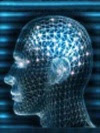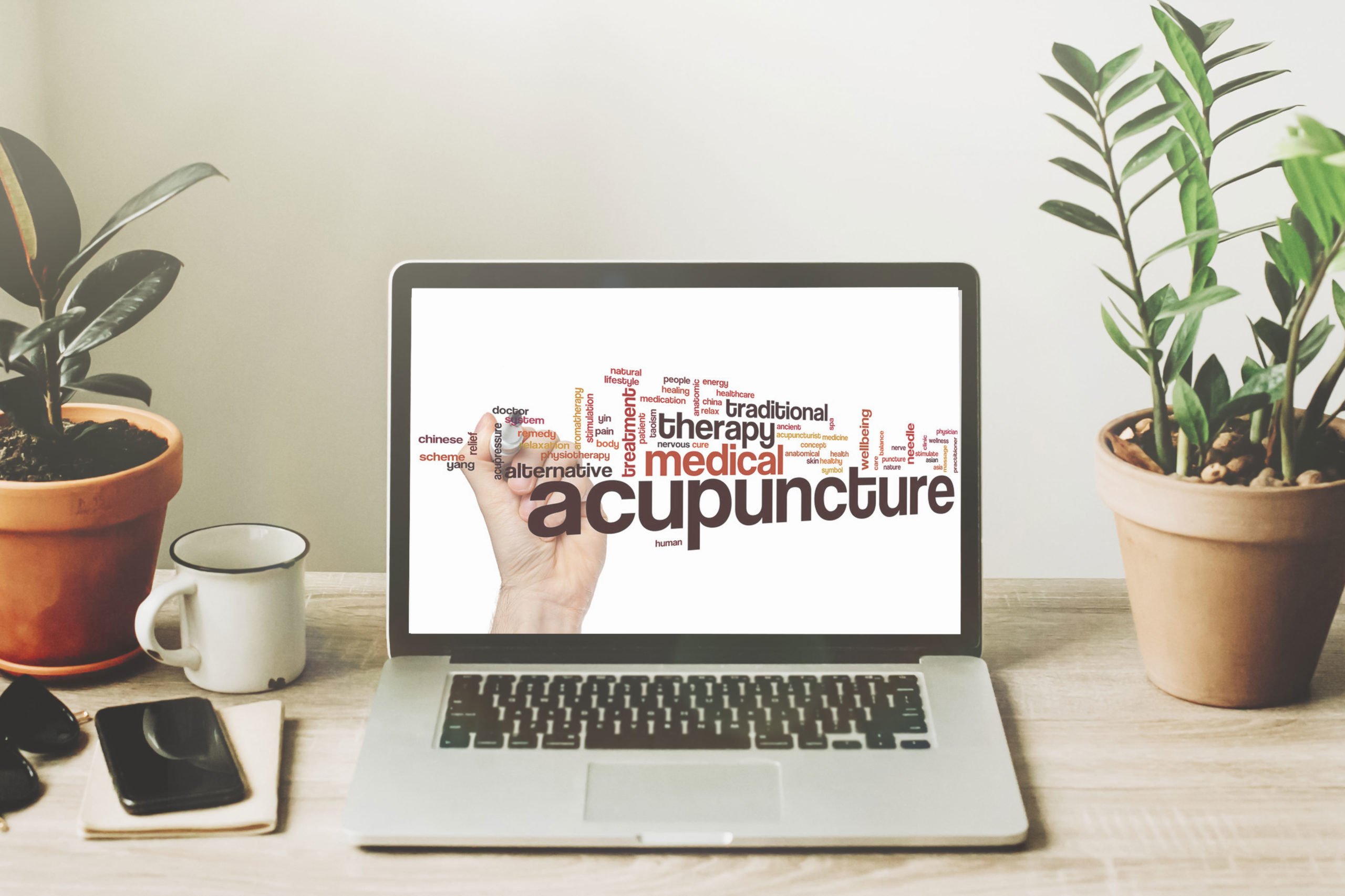Boost Your Brain Power with Acupuncture

Having difficulties focusing, remembering tasks or organizing your thoughts? Acupuncture and Oriental medicine
can help optimize your brain power through a treatment approach that incorporates different modalities, including
nutritional support.
According to acupuncture and Oriental medicine, the spirit (Shen) embodies consciousness, emotions and
thought. Shen influences long term memory, the ability to think clearly, contributes to wisdom and presides
over activities that involve mental and creative functions. When the mind is healthy we are able to think clearly.
When the mind is unhealthy or unbalanced, we experience confusion, poor memory, and clouded thinking.
A healthy mind involves harmony between the brain (Sea of Marrow) and the spirit (Shen). Disharmony of
the mind often manifests as anxiety, insomnia, muddled thinking, forgetfulness and chronic restlessness.
You can enhance this harmony with meditation and acupuncture, as well as physical exercises such as
Tai Chi or Qi Gong. The right foods can balance and strengthen the mind by providing essential nutrients
such as flavonoids, Omega 3s, vitamins, folate and iron that are great for improving the quality and quantity
of learning capacity, cognitive abilities, memory and overall brain function.
Acupuncture Improves Memory and Learning Capacity
The Spleen, Kidney and Heart organ systems all influence intellect. For example the Du meridian influences all
neurological activity by nourishing, stimulating or calming the brain and spirit. The Spleen organ system influences
short-term memory, analytical thinking and concentration and is damaged by worry and poor nutrition. The Kidney
organ system influences short-term memory and retention, and is damaged by fear and aging. The Heart organ
system influences long-term memory and recall and is damaged by emotional and chemical over-stimulation.
To enhance general learning Oriental medicine focuses on improving the flow of Qi to the brain, regulation of
information processing and response to external stimuli.
According to a study published in the October 2008 issue of Neuroscience Letters, acupuncture can significantly
improve learning and memory capacity that has been impaired by hyperglycemia and cerebral ischemia.
Researchers reported on whether electroacupuncture (acupuncture needles stimulated with a mild electrical
current) could improve learning and memory in rats whose memory and cognitive functions were impaired by
the decreased circulatory effects of diabetes resulting in cerebral ischemia.
In the study, the effects of the acupuncture treatments were measured with a passive avoidance test, an active
avoidance test, the Morris water maze and electrophysiology. With all tests, significant improvements were seen
in restored memory and learning capacity. Researchers believe that the positive results of this study indicate
similar benefits for humans and warrant further investigation.
Call (904)448-0046 today to see how acupuncture and Oriental medicine can optimize your mental skills!
Exercises to Improve Concentration
Trouble focusing on your work or losing steam mid-way? Oriental medicine has innovative approaches to
restoring concentration, based on an interpretation of Qi, the energy which powers the body and the mind.
According to Oriental Medicine, Qi stems from four main components of diet, exercise, rest and mental activity,
each of which tend to vary in terms of quality, quantity, frequency, and duration.
Looking at these components, you may realize you need to make adjustments to your diet, fitness, and re-
laxation strategies in order to make them more sustainable and conducive to improved brain function and
overall health. If you are bloated or tired after meals or struggling to fall asleep after turning off the computer,
you already know what actions you need to take to nourish your Qi and mind! Meditation and Tai Chi can also
help calm and focus the mind. Try integrating these exercises, to nourish and improve your concentration.
Eye Exercise for Concentration
Prolonged focus on a fixed location can cause eyestrain as well as Qi Stagnation, impairing circulation and
concentration. You should routinely change your focus from your phone or computer to a point in the distance.
Additionally, try taking short breaks and rolling your eyes in circles, both clockwise and counter-clockwise,
10-20 times in each direction, to relieve strain.
Hand Exercise for Concentration
Manipulating the hands can recharge the mind, according to Oriental medicine and Traditional Chinese Medicine.
Try using Baoding balls, which are small spheres made of wood, stone, metal, or clay which range from 1.8mm
and up in diameter. Place one ball in the hand and try to pass it to each finger, then try rotating two balls within
your palm.
Breathing for Concentration
Breathing exercises redirect your focus to the Liver, which also is the first organ and meridian system affected
in times of emotional stress. As an everyday practice, try breathing in and out, holding the breath, then exhaling
again. Force yourself to “let go” even more, which stimulates an even deeper inhalation. Lengthening the breath
can calm the mind and redirect your focus away from stress.
Meditate to Increase Focus
Create a quiet, relaxing environment, with comforting items (candles, incense, art that has a spiritual importance
to you, etc.) around you.
Sit upright on a cushion with legs folded, or in a chair with your feet firmly planted on the ground, allowing for
free and easy breathing. Relax your shoulders and gently place your hands on your knees or in your lap.
Tuck your chin in slightly and keep your eyes half open, your gaze softly focusing downward about four to six
feet in front, and your mouth slightly open. Observe your breath.
Try belly-breathing – not breathing with the chest, but from the navel. Don’t accentuate or alter the way you are
breathing, just let your attention rest on the flow of your breath.
The goal is to allow the “chattering” in your mind to gradually fade away. If you’re distracted by a thought,
gently bring your mind back to your breathing. Continue to focus on your breathing for 10 or 15 minutes.
Stay relaxed, yet awake and attentive. Finding your balance there is not easy! Eventually, as your body understands
what you are doing, meditating will become easier to enter into. Remember to be gentle and patient with yourself.
Meditating for even 5 or 10 minutes can have a powerful effect on your day.
Good Nutrition Boosts Brain Power
Looking to support your health and also boost your brain function? You can achieve both of these goals
through nutrition. According to Oriental medicine (OM), good nutrition can improve mental activity, physical
and emotional strength and immunity, breathing, and elimination.
Where to begin? First of all, avoid excess. According to Oriental medicine, overindulging in food or drink can
impair your Qi–the energy which powers the body and the mind. Greasy, fatty, spicy, and sweet foods can
also lead to “stuck” Qi, worsening any symptoms of fogginess or sluggishness. So how can you support
your brain and body health with food? Consider these foods and their benefits for your brain and body:
Walnuts for Memory
Walnuts are a good source of Vitamin B and E, which may support memory function and slow cell aging.
Try eating 1-2 walnuts per day for optimal brain function. Nuts and seeds are rich in omega-3 and omega-6
fatty acids, folate, vitamin E, vitamin B6 and zinc, all of which allow you to think more clearly. Seeds and nuts
rich in thiamine and magnesium are great for memory, cognitive function, and brain nourishment.
Leafy Greens for Concentration, Recall and Understanding
Cooked leafy greens support the Yin which, according to Oriental medicine, enables better concentration and
deep rest. Vegetables such as cabbage, kale, spinach, collards, turnip greens and others are rich in vitamins,
folate, and iron, all of which are essential for memory recall and increasing cognitive activity. Oriental medicine
considers cooked foods easier to digest, so throw them in soup, steam them or stir-fry.
Water for a Calm and Restful Mind
According to Oriental medicine, drinking water is a crucial way to nourish your Yin, calming the mind and
improving your rest. Oriental medicine recommends drinking warm water, to support the body’s internal
temperature.
Substitute any beverages with pure water to transport nutrients during digestion, to act as fluid between
the joints, and help regulate our temperature and skin (via perspiration). As a broad guideline, drink half
your weight in ounces of water.
Berries to Improve Learning Capacity
Most berries contain fisetin and flavonoids, which are great for improving your memory and allowing you
to easily recall past events. Blueberries are well known for their role in improving motor skills and overall
learning capacity.
Acupuncture and ADHD

Attention deficit hyperactivity disorder (ADHD) is one of the most common behavioral conditions among
children. In the United States, approximately 4.5 million children between the ages of 5-17 years old
are diagnosed with ADHD each year.
Research indicates that when treating ADHD, a multidisciplinary approach is most effective; combining
behavioral therapy, exercise, dietary changes and medication. Acupuncture and Oriental medicine can
be added as one of the treatment methods that can successfully manage ADHD.
What is ADHD?
Attention deficit hyperactivity disorder (ADHD) is a condition of the brain that makes it difficult to con-
centrate or control impulsive behavior.
Children with ADHD generally struggle with paying attention or concentrating. They struggle to follow
directions and are easily bored or frustrated with tasks. They also tend to move constantly and are
impulsive, not stopping to think before they act.
These behaviors are generally common in all children, but they occur more often and are more
severe in a child with ADHD. The behaviors common with ADHD interfere with a child’s ability to
function at school and at home.
Adults with ADHD may have difficulty with time management, organizational skills, goal setting,
and employment. They may also have problems with relationships, self-esteem, and addictions.
Treatment for ADHD
Treatment for ADHD is multifaceted, consisting of ADHD medications, behavioral therapy and
lifestyle and dietary modifications.
ADHD is best managed when families, educational and health professionals work together to
meet the unique needs of the child or adult who has ADHD to help them learn to focus their attention,
develop their personal strengths, minimize disruptive behavior, and become productive and successful.
An excellent addition to any treatment plan, acupuncture and Oriental medicine are used to help
restore balance, treating the root of the disorder, while also diminishing the symptoms of ADHD.
Acupuncture and Oriental medicine can help improve focus and attention, augment mood manage-
ment techniques, reduce fidgeting, lower hyperactivity and enhance concentration.
Acupressure for Focus
Enhance Concentration
Try pressing on Yin Tang (Hall of Impression), which is similar to the “third eye” location in
yogic practices.
It is level with the base of the eyebrow, midway between the inside corners of the eyebrows,
over the bridge of the nose.
Lean forward towards a table or desk. Bend your thumbs and press your two knuckles into this
point to improve your concentration.
Boost Mental Clarity
Feeling a little foggy? Having trouble concentrating? Massage acupuncture point Du 20 for some
mental clarity.
Du 20 is located on top of the head, midway between the ears. It is used to clear the mind and
improve focus.
Stimulate the point with your index finger 35-40 seconds for a quick “brain boost.” |






About The Author: Julee Miller
More posts by Julee Miller